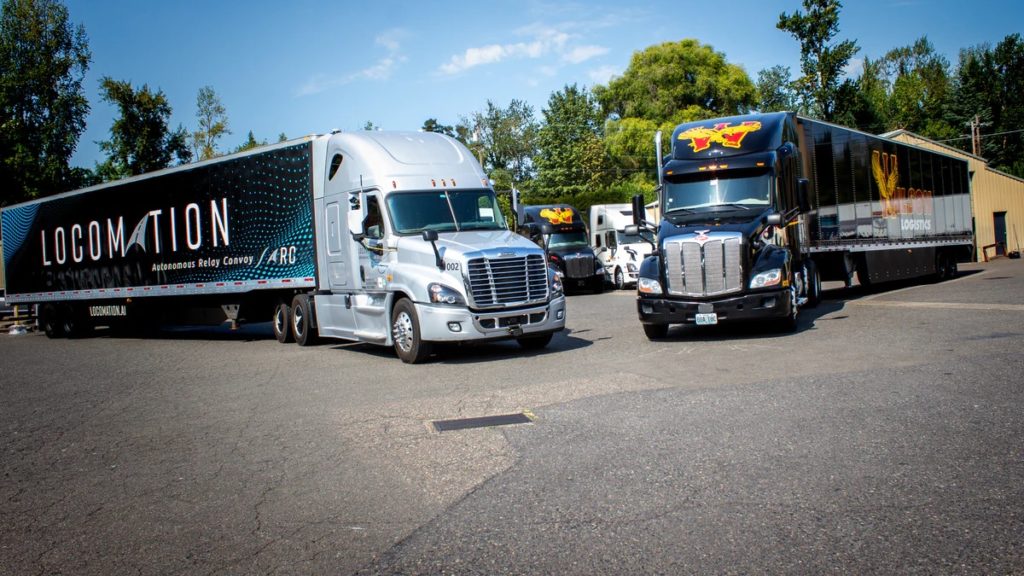The company’s autonomous relay convoy technology was used by Wilson Logistics to run platoons over 420 miles of windy interstate highway, delivering 14 loads while reducing operating costs and saving fuel.
Locomation, a trucking technology platform that offers human-guided autonomous platooning, said the company completed its first successful on-road pilot program transporting commercial freight between Portland, Ore., and Nampa, Idaho.
Locomation partnered with Wilson Logistics, a transportation logistics company based in Springfield, Mo., for the 420-mile pilot run of the autonomous relay convoy (ARC) system. Two Locomation trucks, hauling Wilson Logistics trailers and freight along Interstate 84.
Locomation said it chose the western portion of I-84 for the ARC test runs because it features some of the more challenging interstate highway roads in terms of curvatures, grades and wind gusts. The company’s ARC system allows one driver to pilot a lead truck while the following truck operates in tandem. The follow-truck also has a driver on-board but Locomation said that driver can “log off” while following and rest while the autonomous convoy technology controls the vehicle.
At full commercialization, Locomation said its autonomous vehicle technology could create a 30% reduction in operating cost per mile, including and 8% reduction in fuel consumption, and remove over 40 metric tons of carbon dioxide from the air per convoy annually.
“The successful kickoff of this commercial agreement with Wilson Logistics is a significant milestone for our teams,” said Dr. Çetin Meriçli, CEO and co-founder of Locomation. “Despite the threat of COVID-19, we delivered real-world results for the most advanced, efficient, and safest solution to make commercial autonomous trucking a reality. Most importantly, the pilot [program] strongly proved that our autonomous technology can be integrated seamlessly and deployed within a real trucking operation in a sustained fashion.”
Locomotion’s ARC covered approximately 3400 miles and operated autonomously roughly half of the time, delivering 14 commercial loads. At all times during the pilot, each truck was staffed with a trained driver and a safety engineer tasked with monitoring vehicle and AV system performance, collecting more than two dozen key performance indicators vital to ensuring the successful deployment of this autonomous vehicle technology.
“This test pilot was critical for Wilson Logistics because it proved the true commercial viability of Locomation’s ARC technology,” according to Darrel Wilson, chairman and CEO of Wilson Logistics. “For our team, it’s the perfect combination of safety improvements, increased asset utilization, reduced cost per mile — and most importantly, a better driver experience.”
Wilson Logistics risk management consultancy Aon also participated in the pilot program in order to assess a range of metrics related to safety. “We are thrilled with the performance of the pilot and its safe, on-time deliveries each day. We think Locomation’s platform points to a future for freight carriers where risk factors related to accident and loss are significantly lower,” said Mark Brockinton, CEO of Aon’s Transportation and Logistics Practice.
By Josh Fisher
Source: https://www.fleetowner.com
CUT COTS OF THE FLEET WITH OUR AUDIT PROGRAM
The audit is a key tool to know the overall status and provide the analysis, the assessment, the advice, the suggestions and the actions to take in order to cut costs and increase the efficiency and efficacy of the fleet. We propose the following fleet management audit.




